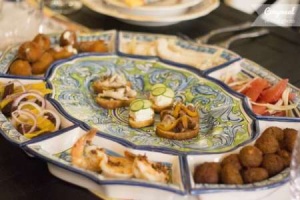Cooking Trends in 2018 and Beyond

Every year, there are defining trends that come out of the cooking world. From avocado toast to truffles built into countless recipes, trends arrive and calm down as they become the norm. In 2018, however, there’s a particular trend that’s arising out of corporate America. Companies see the value in team-building activities, which include cooking parties. Major cooking classes marketplace, Cozymeal, has even created many specific team building experiences to address the new trend. Explore the world of cooking for corporate enhancement. Team-building strategies go far beyond just basic projects in an office environment.
The Human Connection
Regardless of the industry, every company has a distinct culture of different people. There are personalities that range from extremely shy to entirely extroverted. Encouraging these personalities to work as a cohesive unit is difficult for any manager, owner or human-resources department.
Companies must seek out a unique strategy for team-building purposes. Without cooperation between people and departments, the business cannot operate as designed. It’s not necessary for everyone to be best friends, but a mutual appreciation for their work ethic is appropriate.
Delicate Matters
Corporate managers recognize the importance of team-building strategies. They might assign projects to certain groups or individuals. Although this tactic is admirable, connections are made at a very slow pace. It takes time to earn trust through an ongoing project. There are peaks and valleys during this project that can undermine the team-building process.
A main issue with the project-driven strategy is that it involves a limited number of employees. You’re only building a team with a handful of your workers. Everyone needs a strong bond with each other. For this main reason, taking part in an unorthodox activity might be the answer for your dream team.
Designing the Cooking Experience
Taking part in a cooking experience with your entire company is a clever way to forge internal relationships. These spirited workshops require little more than an hour for the actual cooking period. If you’ve ever cooked before, there are certain steps and chemical reactions that must occur in a short, time frame. Your employees must work in a concentrated situation to create a tasty meal. All of this bonding takes place within one day, and not across weeks or months. An intense experience remains with the employees as they return to work the next day.
Starting Out With a Class
Employees don’t enter a class from the moment that they arrive. People arrive to a social engagement. Appetizers move around the room as employees arrive to the experience. They’re encouraged to mingle among different departments. In fact, this time period may be the first occasion that they’re actually conversing with other people outside of their department.
By engaging people on a social level, they begin the bonding process. Although one department may not work closely with another one, they’re ultimately connected through the corporate atmosphere.
Diving Into Games
After socializing, everyone is encouraged to join in on the main event. Games and healthy competition breeds trust, respect and a team mentality. Competition brings out the fighter in almost every person. In a cooking game, teams might be assigned to create a certain recipe. The best recipe wins the game.
Everyone’s strengths and weaknesses come out during a competition. The employees see these strengths, and they’re helpful tools to know about when the next workday arrives. Get to know someone on an intimate level by just watching their competitive side.
Being Treated to a Meal
The competition portion has ended, but the bonding still continues. Most cooking classes end with some form of meal or snack. This scenario acts as a reward to everyone who participated regardless of the competition’s outcome. It puts everyone in a positive, state of mind. Strategies used during the competition may be discussed, which helps everyone understand how the game was played and won. Every encounter is another bonding opportunity for the employees.
Connecting With the Community
Another facet to cooking parties is the community bonding that’s involved. Most companies want a solid reputation in the neighborhood. They want to be seen as a responsible employer who helps out the community. These cooking parties often include local chefs and caterers. By booking a cooking class, companies create connections with these restaurant professionals that can pay off in the future. This bonding activity encourages the workers to seek out relationships that will only help the group dynamic.
Solidifying Memories
Intelligent, team-building activities remain in the employees’ minds for the long term. Because the activity is so unique, it stays in the mind as a milestone. Any relationships developed around this activity tend to be stronger than other associations.
Nearly every city has some form of cooking class geared toward corporate engagement. Get creative as a human-resources representative. Thinking outside of the box with cooking classes will only intrigue your employees as they gain a better appreciation for each other. A strong team will be in place for 2018 and beyond.

